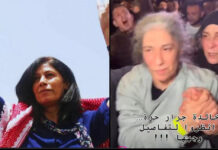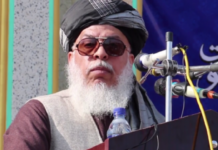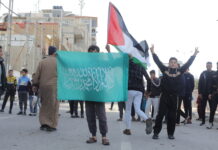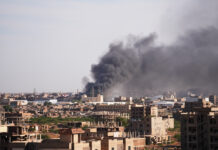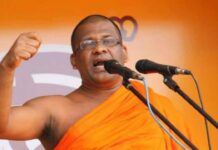Evidence that the Egyptian security forces have once again used unwarranted live fire and other excessive force underlines the crucial need for police reform, said Amnesty International after a weekend of violence left 90 dead.
Security forces used live rounds and tear gas to disperse supporters of deposed President Mohamed Morsi during demonstrations on Saturday, leaving 80 people dead. A further 10 people were killed by gunfire during clashes in Alexandria.
“The latest bloodshed should serve as a wake-up call to the Egyptian authorities over the urgency of police reform,” said Philip Luther, Director of Amnesty International’s Middle East and North Africa Programme.
The Interior Ministry has denied using live ammunition to disperse protests on 27 July. However, testimonies from injured protesters and eyewitnesses as well as medical and video evidence collected and examined by Amnesty International casts serious doubts on the Ministry of Interior’s version of events.
Dead bodies
The Zeinhoum morgue in Cairo received 80 bodies on Saturday. Autopsies carried out on 63 of them by Sunday revealed that 51 had died as a result of bullet wounds. Eight sustained fatal shotgun pellet injuries and three people had suffered wounds by both types of ammunition. One man also died of fractures to the skull. Ammunition extracted from eight bodies included 9mm revolver bullets as well as rifle cartridges.
Doctors at the al-Hussein University hospital said 60 per cent of patients had been wounded from behind.
Subscribe to our newsletter and stay updated on the latest news and updates from around the Muslim world!
“Time and time again the Egyptian security forces have resorted to lethal force, with complete disregard for human life. Firearms should only be used by the security forces against the imminent threat of death or serious injury,” said Philip Luther.
Egypt’s Minister of Interior, Mohammed Ibrahim, said on Saturday that pro-Morsi protesters had used firearms and that security forces initially responded to protesters’ attempts to block traffic. There were no fatal casualties among security forces. Hours before the killings, Mohamed Ibrahim warned that the main pro-Morsi sit-in by Rabaa al-Adawiya would be dispersed.
Abdelrahman Koury, a 22-year-old protester who was shot in the shoulder on Saturday morning, told Amnesty International: “The firing by security forces was non-stop… I survived the violence in front of the Republican Guard [where 51 Morsi supporters were killed on 8 July] but this was much worse. People kept falling around me.”
A 14-year-old boy from Fayoum was also shot in the back with shotgun pellets near the Unknown Soldier Mausoleum area. He said he had seen men dressed in black anti-riot gear shooting at demonstrators.
A photograph seen by Amnesty International also showed a man in police uniform aiming an AK-47 assault rifle at pro-Morsi protesters.
Impunity
Amnesty International is calling on the Egyptian authorities to bring the legislation governing security forces into line with international human rights standards.
“The security forces cannot continue to operate in a climate of total impunity. The new government must prioritize long overdue reforms to the security sector. Its methods of policing protests must change to prevent further bloodshed.”
As an immediate step, the Egyptian authorities must issue clear instructions to security forces to refrain from the use of disproportionate force, the organization said.
As well as violations by the security forces against supporters of Morsi, there have also been reports that Morsi supporters have taken captive and tortured individuals associated with the anti-Morsi camp.
Amnesty International fears for the safety of three men, described by Morsi supporters as “thugs” and captured by them on Saturday. Their whereabouts are unknown. Staff at the morgue in Cairo said that since the political violence began last month eight bodies have been brought in bearing signs of torture – all from the vicinity of pro-Morsi sit-ins. Some had had their nails pulled out.
Two people were found dumped in a rubbish bin near the Rabaa al-Adawiya Square sit-in bearing signs of torture on Sunday. Only one survived.





